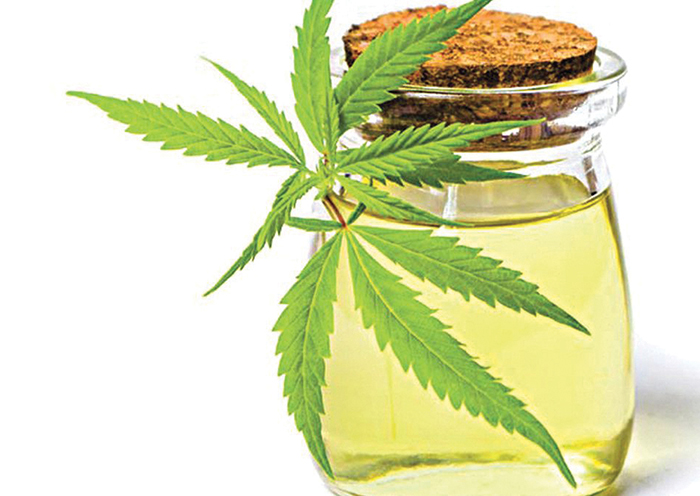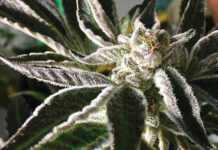Watching the cannabis industry, politicians and regulators freak out over delta-8 THC over the past year or two has been fun, and also enlightening. As with so many other problems associated with the emergent legal-weed industry, this one could be easily solved by simply making cannabis legal at the federal level and regulating the product like any other. Instead, we are beset by all kinds of trouble and confusion.
For those unfamiliar: Delta-8 is THC, much like the delta-9 THC that we normally think of as “the stuff in pot that gets you high.” How the law interprets the slight chemical difference between the two types of THC (as well as the newly popular delta-10 and a few other compounds) has created a gaping loophole for certain merchants, many of them marginal at best, to sell delta-8 “legally.”
You can buy it very easily online, even in states where weed is illegal. That’s because delta-8 is derived from CBD extracted from hemp. Hemp—which is cannabis, but it can’t get you high in its raw form—was legalized under the 2018 Farm Bill. The law states that hemp cannot legally contain more than 0.3% THC, but because it specifies delta-9 THC, any other compound extracted from hemp is (at least according to the jurisprudential theory favored by mail-order sleazebags) perfectly legal.
To be fair, not all delta-8 peddlers are sleazebags. In fact, you can get delta-8 products at your local weed shop if you live in a legal state. Those products have been tested and are as safe as any other item in the store. Many users report that delta-8 offers a milder high free of the anxiety that besets some cannabis users (supposedly, delta-10’s high is milder still). There is the potential for a perfectly legit, healthy market for non-delta-9 THC products, but that will happen at scale only after pot is legalized at the federal level.
Until then, it’s the Wild West: Delta-8 is often sold without “THC” appearing anywhere on the label. Most of the sales apparently come from online merchants who often sell into states where adult-use pot is still illegal. States have tried to restrict or ban sales, so far to little effect.
Late last year, the California Legislature, as part of the law it passed allowing hemp products in consumable products, made it illegal to sell any product with a combined level of THC higher than 0.3% outside the regulated cannabis market. The state is still working on its regulatory framework for how to go about enforcing the law, however, and for the moment Californians can still buy delta-8 products from online merchants, often at astonishingly low prices.
Still, moves like California’s, as well as new laws being passed in states like Texas, Indiana and Kansas, are causing many merchants to exit the business. One merchant recently went out of business with a clearance sale: Vape carts containing delta-8 and delta-10 hemp oil were selling for $11, less than a third of their average retail price. I bought a delta-10 cart out of curiosity: One small toke sent me into a minutes-long coughing fit. Into the trash it went. Maybe I should have disposed of it as a hazardous material.
None of this would be a problem if weed were universally legal and wisely regulated. The situation is just as bewildering at the federal level as it is within states. In May, the Ninth Circuit Court of Appeals ruled that delta-8 is legal under the Farm Bill. Just a day before that ruling, the Federal Trade Commission sent letters to five delta-8 peddlers, warning them to stop selling the products because they violate the federal Food, Drug, and Cosmetic Act.
What is a confused weed consumer to do? First, take a lesson from my coughing fit: If you’re interested in alternatives to delta-9 THC, just go to your local, licensed dispensary, where all products have been tested by a third party. And second, avoid buying any kind of consumable item via mail order from merchants with whom you’re not familiar. Third, pressure your lawmakers to get weed legalized at the federal level.
Originally posted on EastBayExpress.com








